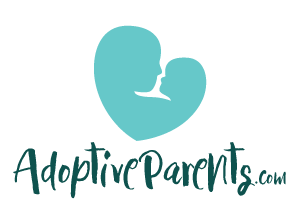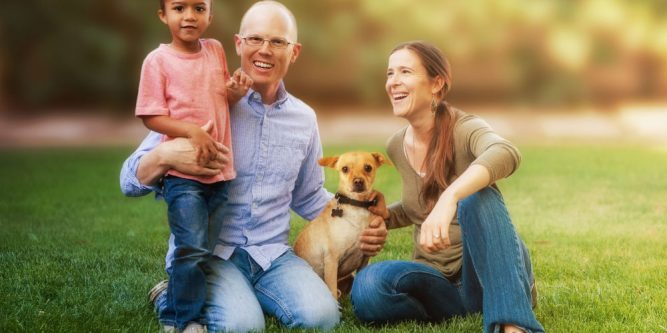Families don’t have to match, and yet, most do. Transracial families are created in many ways—not just by adoption—but when you become a transracial adoptive parent, these three things will likely happen to you, too.
- You will be noticed.
My biological daughter looks a lot like me; she has fair skin, radiant blonde hair, and her daddy’s green eyes. My son is Hispanic; he was born with a full head of jet black hair and has gorgeous brown eyes. The differences between their hair colors especially is strikingly beautiful. I’ll never tire of watching them hug and play side-by-side (along with their little bald baby brother). When we’re out and about, other people notice their stark contrast, too.
I cannot count the number of times we’ve been stopped in the grocery store by well-meaning strangers who gush over their cuteness, and then often ask how my son got such dark hair, or even offer their own assessment that he must have gotten it from his dad. I typically smile and nod in agreement, and then try to hurry away. While I am proud of my son, and his heritage, and the fact that he was adopted, it doesn’t mean I want to have that conversation with everyone we meet. It is his story to share, and something that he may struggle with and grieve someday when he can understand it all. So, while I do love the compliments from strangers, I also hold my breath, hoping the conversation stops there and doesn’t leave me feeling like I have to explain why he looks a little different from his siblings.
- You will begin to see the world differently.
When my husband and I started the adoption process we discussed what type of child we could welcome into our home. It’s one of the many questions asked as part of the initial home study. We had to consider gender, race, medical conditions, etc. We decided we would welcome either gender and any race into our home, while we carefully selected which medical conditions we could realistically handle.
The reality that our future child could be any race, and wanting to prepare our two-year-old daughter at the time, made me very race conscious in regards to what toys and books we had in our home. Racial bias is everywhere, and I suddenly realized that I needed to be very intentional about celebrating diversity, or I would just be perpetuating the problem. I understand that buying diverse toys and books is a very small step in bridging the racial gap in our country, but it is also something that is easy and important to do before our children begin to have racial preferences (which is around three years old).
When our son was born, I began to notice the people around us more and assessed how many people look like me, how many look like him, how many people look different than both of us. It became important for me to see diversity in our everyday lives.
- You will speak up.
Seeing racial injustices always broke my heart, but that was that. I didn’t often speak up or point out “harmless” racist jokes made by friends or even family. But parenting and loving a child of a different race ignited a passion inside me to fiercely protect and defend. I would take on any hurtful word or tragic circumstance if it spared my children pain, but I can’t be their shield. However, I can be a voice; a voice that speaks out against racism, encourages the pursuit of justice, and expresses love to everyone.





